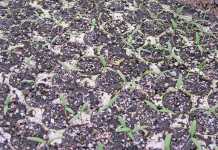But the energy crisis is certainly not South Africa’s only big challenge – experts predict that water shortages will be an even bigger problem in the future.
The level of drought we experience in South Africa is already a major problem for the agriculture sector and it can’t afford to lose any more of its water resources.
According to the South African Weather Service, between July 1960 and June 2004, the country experienced eight summers where rainfall for the entire season was less than 80% of the normal rainfall expected. And things haven’t improved much since then, although some areas are more badly affected than others.
Although South Africa is a semi-arid country (we are one of the 30 driest countries in the world, according to the Water Research Commission), this is not the only reason why we are facing a looming water crisis. Firstly, there is a lot of water wastage in the country through dripping taps, leaking pipes and so forth.
Another reason for the country’s dwindling water supply is a lack of water conservation and purification. The farming industry uses lots of ways to purify water, such as hydrogen peroxide.
But what happens in terms of waste water treatment? There are various products on the market that can help farmers treat waste water. And the Department of Water Affairs has said that it will prioritise the purification of water other than seawater, for reuse, through its ‘desalination strategy’.
Another problem we have in the country is acid mine drainage, especially in Gauteng. This severely affects the quality of the drinking water that flows into rivers in the Gauteng area and is very difficult to treat. The Emalahleni Water Reclamation plant has shown that badly polluted water can be purified – however, the process is s very expensive. The cost of the water was three times more expensive than water from the Vaal River.
More affordable solutions will be necessary for the agriculture sector – currently the biggest water using sector in the country.
If agriculture suffers, so will SA’s economy. Therefore finding affordable water treatments solutions will become increasingly important to prevent an Eskom-like water crisis in the future.










